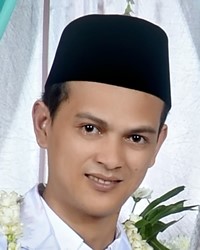Banten in Indonesia

Photo Source:
Raudalkhudri - Wikimedia
Creative Commons
|
Send Joshua Project a map of this people group.
|
| People Name: | Banten |
| Country: | Indonesia |
| 10/40 Window: | Yes |
| Population: | 3,336,000 |
| World Population: | 3,336,000 |
| Primary Language: | Sunda |
| Primary Religion: | Islam |
| Christian Adherents: | 0.12 % |
| Evangelicals: | 0.12 % |
| Scripture: | Complete Bible |
| Ministry Resources: | Yes |
| Jesus Film: | Yes |
| Audio Recordings: | Yes |
| People Cluster: | Sunda-Betawi of Java |
| Affinity Bloc: | Malay Peoples |
| Progress Level: |
|
Introduction / History
When Indonesians hear "Banten", they often think of a variety of mystical arts. The Banten are basically Sunda people who have had a different identity since the 15th century establishment of the Banten Kingdom, which broke off from the Padjajaran Kingdom of West Java. The Banten live in Banten Province in the southwest of the island of Java. Currently, most Banten live in the regencies of Pandeglang, Serang, Lebak, and western Tangerang, as well as the cities of Cilegon and Serang. Since 2000, Banten has become its own province, separate from West Java. The Banten speak a dialect of the Sunda language. This dialect is regarded as less polite and less sophisticated than the dialect spoken by Sunda living in West Java.
What Are Their Lives Like?
The Banten grow rice and other crops such as coffee, cloves, jengkol beans, bananas, and durian (a fruit with pungent odor and thick, spiky shell). Cooperative groups work the land. One type of group is the royongan; in the royongan workers are not paid directly. Instead, their wages are pooled and saved by the community elder to be used for the repair of the mosque and Muslim prayer houses.
Another form of cooperative work is called liliuran, which is helping one another work the rice field without any expectation of payment. Cooperative work arrangements are also used for repairing roads, bridges, and other public facilities. All community members are required to participate in cooperative work, and any household who does not participate is assessed a fine.
Banten leadership is composed of three elements: formal leaders, Muslim religious leaders, and leaders of the traditions and culture. These three groups play an important role in forming the local political system. Village leaders cultivate and develop the village's kinship relationships. Other leaders take care of matters related to administration, irrigation, logistics, and religion.
Ancient Banten holds interest for historians and archaeologists, as it is one of the famed kingdoms of the past. Banten has many tourist attractions, such as a nature preserve and the great Mosque of Banten, which includes tombs of Banten's sultans south and north ends. A nine-level rock (15 meters high) is reportedly a relic from the Megalithic Era. Banten is open to the outside world for tourism, but the Banten protect their traditions and culture.
What Are Their Beliefs?
From the 15th century establishment of the Sultanate of Banten until today, the majority of the Banten have been Muslims. They are faithful Muslims, but still practice black magic and occult power. This can be seen in the famous art of Banten known as debus; through the use of certain mantras the body of a practitioner can be made invulnerable to physical blows, fire, and sharp objects. Many people from different regions of Indonesian come to Banten to learn these spells or to ask for help. The Banten are known as people who have great occult knowledge.
What Are Their Needs?
Banten farmers and merchants need to modernize to remain competitive; this may require them to ease their insistence on traditions.
They need better educational facilities, as well as joint business ventures with outside companies to achieve a higher level of competitiveness. Additionally, the Banten living in remote areas such as Panjang Island in Banten Bay need development to overcome poverty.
Prayer Points
Pray for distribution of the scriptures in the Sunda language and for opportunities to show the JESUS Film.
Ask God to send the Banten workers who can help them modernize their farming and business practices and who can improve their education.
Pray for community development efforts in the context of the gospel that will improve the living conditions for the Banten.
Pray for a movement of multiplying disciples and churches among the Banten.